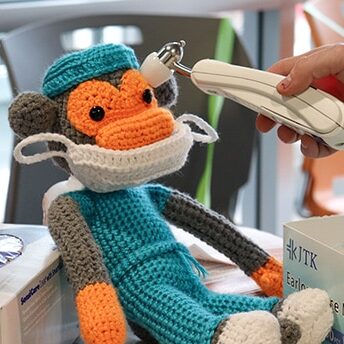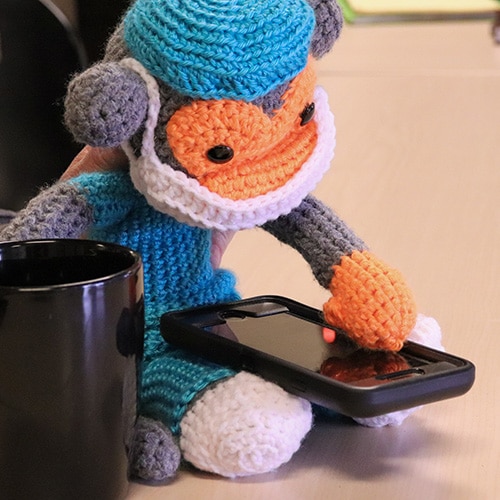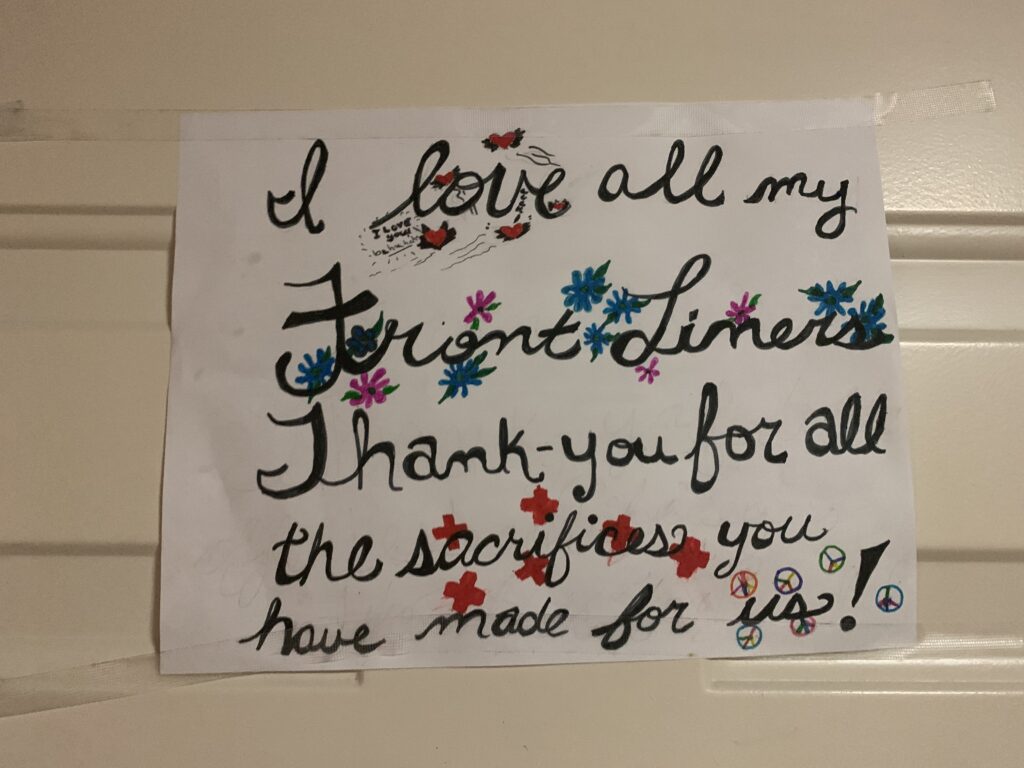Our first two months responding to COVID-19
This report shines a spotlight on the incredible work The Alex has achieved over the past few months. It is a testament not only to the work we do, but the work you have done to provide critical support during this time, as funders, donors, community partners and friends.
So thank you for being a part of The Alex family. We deeply appreciate your support of our organization and the vulnerable people we serve, particularly at this time. And thank you for supporting our team; the people who are delivering on our promise to support vulnerable Calgarians; the people who provide health, housing and social supports to our neighbours, many whom would not have anywhere else to turn.
You make this possible.

– Joy Bowen-Eyre, CEO
The First Few Weeks
Adjust, respond, then adjust some more.
As COVID-19 reached Calgary, The Alex team worked tirelessly to adapt and reorganize our entire operation to create new ways of supporting our community. Within a matter of days, we tapped into the commitment and ingenuity of our staff to find solutions despite creating needed physical distance between us.
Not one day was lost. We worked to be as responsive and nimble as we’ve ever been, to ensure continuity of care for our community. We realigned and integrated our programs and services to meet the most pressing needs of the thousands of people we serve.
Collaborating with local health and emergency authorities and our sector colleagues on our response, we continued to follow the advice of official public health authorities. During the first few weeks we maintained a direct connection with the Medical Officer of Health to increase our screening and implement new protocols on an almost daily basis.
Across the social-service sector, we have been required to adapt and ensure that no one is left behind or falls through the cracks during this crisis.
We understood that physical distancing was necessary but knew that true social distance would be a serious blow for our already vulnerable community. Every decision we made has considered this dichotomy: Keep our staff and community safe while maintaining connection and care.
While we ceased group programming, we rolled out our new Social Dispatch Centre which involved the re-deployment of our food, social and wellness staff members. Our medical teams separated into two and rotated, to ensure we would have a staffing component if one team had to self-isolate.
We closed our Youth and Housing wings to reduce the number of spaces that needed cleaning, heightened our protocols for entry, and worked overtime to ensure our spaces were continuously disinfected.
At the heart of our COVID-19 response was our Community Health Centre. With all health clinics being centralized into this “command centre” we continued to accept in-person medical appointments for current Alex clients while following all screening and masking protocols. In addition to adding weekend hours, our medical clinics delivered more appointments and saw more unique patients than in previous years, with a substantially higher ratio of virtual/telephone appointments to in-person visits.
By continuing with this model of care throughout the pandemic, we never wavered on our committment to those who needed us.
While this report is a reflection of a moment in time, it captures the spirit of innovation, adaptation and the raw get-it-done attitude of The Alex. We also know this is far from over. There is no doubt COVID-19 is a medical crisis, but it is also an economic crisis, and will continue to be a mental health crisis as we slowly recover.
We are always keeping one eye on the future in these most uncertain of times, to understand and properly prepare for how the need for our services is going to grow.



Social Dispatch
You’ve reached The Alex – how can we help you?
It’s been nothing short of an incredibly emotional, intense time for our teams. We truly know the impact of social isolation and how important having a strong community is, especially for those who are most vulnerable to experiencing poverty, homelessness, or mental health issues.
6314
direct outreach connections to individual community members and families.
So as we move through this collective unknown, the team at The Alex has done what we do best – be nimble, accessible, and kind. Our Social Dispatch Centre (a team of cross-program social workers, youth workers, justice navigators, client resource specialists, case managers, food educators and more) began managing a bank of phones (at a safe 2 metres from each other), providing critical lifelines to our community.
Any current Alex client (both patients and participants in any of our programs) was invited to call in to connect with a friendly voice on the other end of the line. Our team was quickly able to triage each call to best understand what people need and how to best support them. Those feeling a financial pinch were directed to funding resources, or encouraged to register for our remote tax clinics, to make sure they received the benefits they were entitled to.
$77,000
in grocery cards given for basic needs items.
We sent clients grocery gift cards to support their shopping if they could access a supermarket, or we prepared and delivered food hampers with recipes (think Hello Fresh) if shopping wasn’t an option. Our team organized heaps of basic needs items, bringing diapers, formula, toilet paper and hand sanitizer to the doorsteps of families quarantined and unable to get their own items.
Our Social Dispatch team directed and supported over 6,000 requests for mental health and addiction supports, parenting questions, justice issues, educational resources, and financial resources, using our network of collaborative agencies and expertise.
Chelsea’s Story
A young 23 year old mum had four small children in her home, all with suspected COVID-19, based on a remote assessment completed by our physicians. I was able to connect with her and asked what essentials she needed for her family of six, since they could not leave the house for 14 days. We were able to use $75 worth of gift cards and go shopping for the family, gathering essentials like flats of soup, eggs, apples, bananas and Children’s Tylenol.
Upon arriving at the house, we took all of the groceries out and left them on their front porch, and called them to let them know the items had been left. We waited in the vehicle ensuring they got everything inside before leaving. I can’t think of a more tremendous gift than being able to provide a family in need with essentials, especially when their entire household was so ill and unable to leave the house. Having sick tiny humans is treacherous in any event, let alone a pandemic. The work that we do is invaluable to the community, especially during these trying and uncertain times.
– Chelsea, Youth Support Worker
Assisted Self Isolation Site
How do you self-isolate when you don’t have a home?
The Alex has been a key player in a system-wide response to providing a safe, medically supported space for those experiencing homelessness.
220+
Calgarians experiencing homelessness protected from potentially spreading the virus in our community.
The Assisted Self-Isolation Site (ASIS) is a collaboration between The Alex, Alberta Health Services, Calgary Homeless Foundation, HomeSpace, and CUPS. Re-purposing a vacant hotel in the city’s northeast, ASIS provides safe, comfortable rooms for those who either have tested positive, are waiting for test results, have symptoms or have come into contact with a known case and don’t have a home where they can properly isolate. The staff provide not only medical support, but also mental health and addiction resources.
Through tremendous efforts of the front-line teams, ASIS opened within one week of receiving funding from the Government of Alberta. We immediately saw an incredible collaboration unfold across the city, as shelters and hospitals referred into the program.
To date we have protected over 220 Calgarians experiencing homelessness from potentially spreading the virus in our community.
Violet’s Story

The note, written in beautiful cursive, and decorated with flowers, peace signs and red crosses, read “I love all my Front Liners. Thank you for the sacrifices you have made for us!” Violet had taped it to the door of her room at the Assisted Self-Isolation Site (ASIS) as she was being discharged, as a way of showing her appreciation for the team that had helped he through her two weeks at the hotel.
Violet is one of the many Calgarians experiencing homelessness who entered ASIS so she could have a safe space to self-isolate. She had been traced as a close contact of someone who had contracted COVID-19.
During her time spent at ASIS, the teams worked to ensure she would be supported after her two-week isolation. Each resident receives a customized care plan to provide on-going supports. Violet was provided with a phone and SIM card, and will be moving to a housing facility being operated by Alpha House.
Having somewhere to go, you know, having a home to go to. Wow. To go home. To cook supper. To cook my own meals. To sleep in my own bed. Some people take it for granted. I implore them not to take it for granted because it can all be taken away in the blink of an eye. But now, to have it given back – it’s surreal – it’s a glorious gift,” Violet said. “This is a godsend – this is a new start.”
“It’s been pretty amazing, actually – a well-needed rest. They feed you quite nicely. It was good to put on weight too. The people are really personable here. The one-on-ones were awesome – nurse Rachel is wonderful. I have only been here for a short period of time, but I’ve done so much soul searching – being healthier and thinking healthier.
Community Food Centre (CFC)
Growing, cooking and sharing during COVID-19.
As the world closed its doors in late March, we at The Alex Community Food Centre had to look inward and ask ourselves “What does a community resource like the CFC look like without the bustling energy of our weekly meals, the laughter of kids in our cooking classes, and the welcoming smiles of our volunteers greeting people at the doors? How do we deliver the comforts and kindness of our programs during a time of physical distancing?”
Like everyone, we adapted. In the earliest weeks of the crisis, we cast our sights across the broader Alex community. First, we focused on our most vulnerable clients, those with complex medical, mental health and addiction needs. Our kitchen staff began preparing and delivering over 4,500 hot meals to clients to ensure they stayed comfortably in their homes.
14, 502
fresh, nutritious meals delivered to food-insecure Calgarians.
As we moved away from an emergency response and into the longer-term, the CFC kitchen pivoted yet again to ensure we were prepared to respond to increased requests for support. With the help from our funders and supporters, we began to offer financial supports for food, shopping services, grocery kits, and meal kits.
The kitchen stayed busy making delicious, healthy, re-heatable frozen meals, ready to be safely delivered to those who are unable to prepare food at home. Meal hampers were delivered to people able to cook independently with some support, and grocery cards were given to community members who could go shopping and cook what works best for their families.
As the weather warmed, we looked at ways we could use our large outdoor garden to safely bring people together and recapture the spirit of community. Our first affordable produce market kicked off in early May, ensuring physical distancing, but celebrating social togetherness. The market is providing a spark of community spirit in the Greater Forest Lawn area.
On Wednesdays Fresh Routes brings a truck filled with fresh fruits and veggies, and sets up shop. Families can leave with bags overflowing with zucchini, broccoli, carrots, apples, grapes, potatoes and more – a value of $50 for just $25.
Throughout the morning the staff are busy preparing a delicious take-home meal, given for free to every attendee. A generous volunteer has sewn beautiful handmade masks, which are given out to anyone who wants one. Community resources and opportunities to sign up for programs are also available. The market is a welcome respite for many who have been struggling to stay connected to their community, or to access healthy food through the pandemic.
I felt so supported and cared for and it honestly made such a big difference these days. The box was amazing, and all of those things included were so helpful.
While we can’t yet all sit together and share a meal, we can share a friendly nod to a neighbour. We can share ideas for recipes for the bounty of food we are taking home, and we can remember that we will get through this together, and come out the other side a stronger community for this shared experience.
Youth Health Centre
Ensuring vulnerable youth don’t fall through the cracks.
1015
unique youth received services through our Social Dispatch team
Our Youth Health Centre drop-in space operates on the maxim “If you feed them, they will come”. We’ve always ensured that a hot, healthy meal is available to entice youth who may otherwise be scared or shy, to visit our team of youth support specialists. Once we have them in the door, our staff welcome youth through non-judgmental compassion. We walk with them in the process of reclaiming their lives, working through challenges and cultivating healthy and successful futures.
Of course, once our society closed its doors in late March, so did our drop-in space. Integrating our Youth Workers with our Social Dispatch team allowed them to reach out, check in, and be available through phone, email and video when our youth needed it most.
Our team supported clients in many ways – through conversations about addiction, providing baby supplies, making referrals to the food bank, giving out grocery gift cards, hampers and meals, helping find housing, navigating the justice system, and providing a listening ear – all things that didn’t stop being needed because of COVID-19, or perhaps were needed even more.
Our medical and counseling services remained open and available throughout the pandemic. While our Youth Health Bus missed the last few months of high school visits, we stayed in touch with our teenage community members and made sure they knew we were still here for them.
Kiera’s Story
With the closure of schools, our Youth Health Bus outreach was paused. However, the physicians and social support staff that work on the buses continued to provide care telephonically, virtually, and in-person by appointment at The Alex during COVID-19.
A 19 year old youth who had previously been accessing mental and physical health care on the Youth Health Bus was struggling with heightened anxiety and challenges related to an eating disorder. We’ll call her Kiera. Her physician, Dr. Deb, wanted Kiera to visit the clinic in person but was having a hard time reaching her by phone. When Dr. Deb finally managed to connect with her, Kiera said she didn’t feel safe leaving the house. Dr. Deb was quite concerned about Kiera’s health and wellbeing, so she requested that one of our client resource specialists, Lyndon, deliver a healthy food hamper, her medication, and some basic needs supplies to her home.
When Lyndon dropped off the supplies and made physically-distanced in-person contact with Kiera, he saw that she indeed required support. He described the robust safety protocols implemented at The Alex during COVID-19, and was able to reassure her that it was a safe environment. Kiera then agreed to visit The Alex and saw Dr. Deb who was able to continue the care she needed. Kiera has resumed her treatment and has been back on track over the course of the pandemic.
Seniors Health Centre
Our most at-risk demographic stays safe.
Nestled at the base of low-income seniors’ housing in the East Village, The Alex Seniors Health Centre has seen significant changes to the community over the past years. Development has thrived in an area that was once a forgotten part of downtown. Navigating these changes, as positive as they may seem, has been a challenge for our staff and especially the community members, who often find changes to routine difficult.
So of course, the changes that came from the pandemic had a deep effect on the mental health of the seniors we serve. Many made the trip down to the clinic part of their daily routine – a way to see a friendly face for those who struggle with social isolation. Having to lock the doors of the clinic was one of the hardest things we’ve ever had to do.
These necessary changes to the way we support our seniors’ health, difficult as they were, have been an integral part of our incredible results. Not one of our over 1,200 at-risk seniors has tested positive for COVID-19 at this time. To be able to say that we were able to protect our most vulnerable population is a true testament to this work.
We continue to provide important social navigation and support to seniors – showing them how to use their phone to order meals, where to get inexpensive groceries in their neighbourhood, and how to send photos of their ailments to our team to look at.
Of course, we hope to be able to open our doors slowly and safely again, knowing that we are a lifeline for more than just physical health. And we’re looking forward to the day we stop getting photos of bunions, but rather see them in person once again.
Housing First Programs
Positive transitions from homelessness during a crisis.
Our four housing programs helped transition 500 individuals out of homelessness last year, using an intensive support system of case managers, physicians, addictions specialists and mental health clinicians.
The path to housing is not always an easy one. The transition from a life of transience to permanence can often mean saying goodbye to existing friendships and “street families” as lifestyle changes mean removing opportunities to slip back into old habits. Even in the best of times, we see individuals who are struggling with depression, addiction and other severe mental health issues.
As COVID-19 hit, we worked around the clock to ensure that our housed clients felt safe and supported. Providing meals, books, video games, and art supplies helped keep folks in their homes and reduced stress. Many of our housed community members have psychiatric disorders including schizophrenia and bipolar disorder, so helping them understand the severity of the pandemic was a priority.
Connection is critical during this time. We reached out to ask for computers and smart phones so that our case managers could safely conduct “home visits” and be lifelines for those who were having a difficult time. The generosity of our community was overwhelming, and we are still receiving much-needed technology.
Our Pathways to Housing, HomeBase, Prelude and Abbeydale housing programs saw their own unique challenges. Engaging in creative service provision and cultivating connection in the throes of isolation, empowered us to determinedly break down the barriers created by the pandemic.
Thank you!
Our COVID-19 response has been a deeply collaborative experience. From setting up a new way of working to the daily provision of wraparound, caring and compassionate health care and social supports, our Alex family has worked together.
Our board, staff, funders, donors, volunteers, and community members who access our services have been with us from the beginning of this global crisis. You have all played a role in our on-going response. At every turn, you stepped up.
When we needed advice, we reached out and you said, “Yes.”
When we needed funding, we reached out and you said, “Yes.”
When we needed clothing, technology, cleaning supplies, or groceries, we reached out and you said, “Yes.”
Not only did you say “Yes,” you asked “and what else?”
